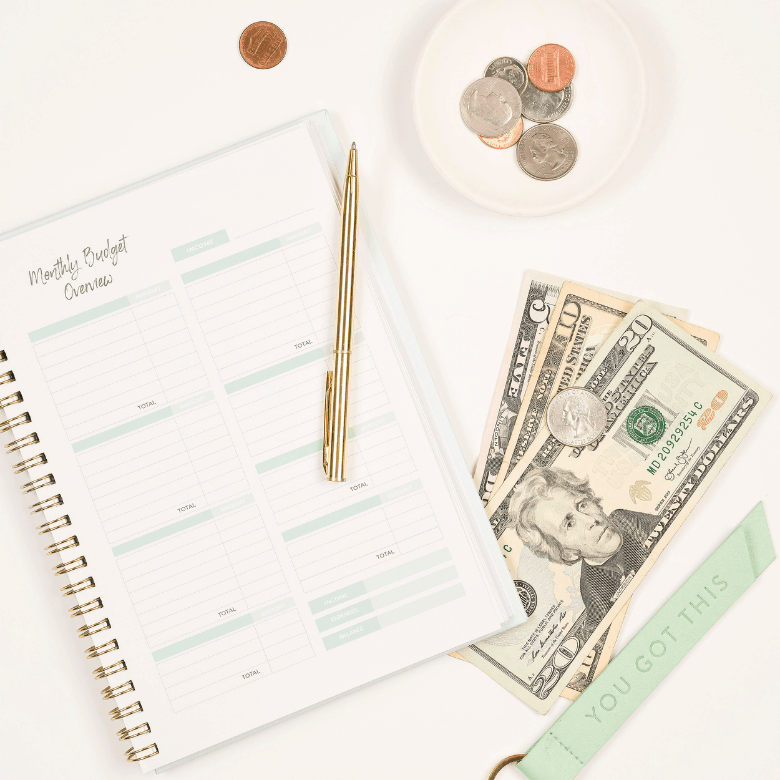How to Identify Financial Abuse in Your Relationship
Are you concerned that your partner may be financially abusing you? Financial abuse is a form of domestic violence that can be difficult to identify. It can take many different forms, from controlling your income to limiting your access to money. If you are worried that you may be a victim of financial abuse, it is important to learn how to recognize the signs.
Financial abuse can happen in any type of relationship, whether you are married, living together, or just dating. It is a form of power and control that can be used to keep you trapped in an abusive relationship. Some common signs of financial abuse include your partner controlling your income, limiting your access to money, or pressuring you to quit your job. If you are experiencing any of these things, it is important to seek help.
It’s important to talk about finances in relation to domestic violence because it’s one of the main reasons that keeps victims trapped in an abusive relationship. According to data from the CDC, the physical and mental trauma that intimate partner violence causes over a victim’s lifetime costs about $100,000 for women and $20,000 for men.
Recognizing financial abuse is the first step in getting out of an abusive relationship. By understanding the signs of financial abuse, you can take steps to protect yourself and your finances. If you are concerned that you may be a victim of financial abuse, it is important to talk to someone you trust or seek help from a professional. Remember, you deserve to be treated with respect and dignity in all aspects of your relationship, including your finances.
To learn more about Domestic Violence and the warning signs to look out for, listen to Episodes 38-43 of the First Hustle Then Brunch Podcast.
Understanding Financial Abuse
Financial abuse is a form of economic abuse that involves controlling or manipulating money matters to gain power over someone. It can occur in any type of relationship, including romantic relationships, family relationships, and friendships.
Defining Financial Abuse
Financial abuse can take many forms, including limiting access to money, controlling financial decisions, and forcing financial dependence. It is often a subtle form of control that can leave victims feeling trapped and helpless.
Signs of Financial Abuse
There are several warning signs of financial abuse to look out for in a relationship. These include:
- Criticizing and minimizing your job or choice of career
- Pressuring you to quit your job or business
- Interfering with your ability to earn money or gain assets
- Monitoring your spending or limiting your access to funds
- Forcing you to account for every penny you spend
- Making all financial decisions without your input
- Making you feel guilty or ashamed for spending money
- Forcing you to sign financial documents without your consent
- Refusing to contribute to household expenses while expecting you to pay for everything
If you notice any of these signs in your relationship, it is important to seek help and support. Financial abuse is often a precursor to other forms of abuse, including physical and emotional abuse.
Remember, financial abuse is not your fault, and you do not have to suffer in silence. There are resources available to help you break free from financial abuse and regain control of your finances and your life.
Recognizing Abusers and Victims
Financial abuse is a form of coercive control where an abusive partner uses money as a tool to gain power and control over their victim. It is a serious issue that affects both men and women, as well as children and vulnerable individuals. In this section, we will discuss the profile of an abuser and the victims of financial abuse.
Profile of an Abuser
Financial abusers often exhibit certain behaviors that can help identify them. They may control all the finances in the relationship, limit their partner’s access to money, or force them to be financially dependent on them. They may also use money as a way to punish their partner or make them feel guilty.
Abusive partners may also criticize and minimize their partner’s job or choice of career, pressure them to quit their job or interfere with their ability to earn money or gain assets. Some abusers may even use children as an excuse to control their partner’s income potential. These behaviors can have a significant impact on the victim’s financial independence and overall well-being.
Victims of Financial Abuse
Anyone can be a victim of financial abuse, regardless of their gender, age, or socioeconomic status. Victims of financial abuse may feel trapped and helpless in their abusive situation, especially if they are financially dependent on their abuser. They may also experience guilt around money, lack of ability to believe they can manage finances, and a desire to rebel and spend money because it has been restricted for them.
It is important to note that financial abuse often accompanies other types of abuse, such as physical, emotional, or sexual abuse. If you or someone you know is experiencing financial abuse, it is important to seek help and support. There are resources available for victims of financial abuse, including hotlines, counseling services, and legal assistance.
Tactics of Financial Abuse
As mentioned above, with financial abuse, an abuser uses money as a tool to control the victim. It can take many forms, and it’s important to recognize the tactics financial abusers use in order to protect yourself. In this section, we’ll discuss two common tactics of financial abuse: Control Over Resources and Withholding Money and Information.
Control Over Resources
One common tactic of financial abuse is for the abuser to take control of all the economic resources in the relationship. This can include controlling the finances, limiting access to money, and making important financial decisions without consulting the victim. The abuser may also prevent the victim from attending important meetings or taking part in financial planning.
Withholding Money and Information
Another form of financial abuse is withholding money and financial information from the victim. This can include not allowing the victim to work, not providing child support, or not sharing financial information such as bank account details or tax returns. The abuser may also use money as a way to punish or control the victim, such as by threatening to take away financial support if the victim does not comply with their demands.
Other examples of financial abuse include the abuser taking out loans or credit cards in the victim’s name without their knowledge or consent, or forcing the victim to sign financial documents without explaining the details. Financial abuse can also include using the victim’s money for the abuser’s own benefit, such as by spending it on drugs or gambling.
It’s important to recognize the signs of financial abuse and take action to protect yourself. If you’re experiencing financial abuse, seek help from a trusted friend, family member, or professional. You can also contact a domestic violence hotline or seek legal advice to learn more about your options for safety and support. Remember, you deserve to be in control of your own finances and have access to the resources you need to live a safe and healthy life.
The Impact of Financial Abuse
Financial abuse can have a lasting impact on both the relationship and the individual’s independence. It involves complete control over your finances, which can leave you feeling trapped and helpless. The impact of financial abuse can be felt long after you have left the abusive relationship.
On Relationships
Financial abuse can have a significant impact on relationships. It can cause tension, mistrust, and resentment between partners. The victim may feel like they are not valued as an equal partner in the relationship. The abuser may use money as a way to manipulate and control their partner, which can lead to feelings of isolation and loneliness.
On Individual Independence
The impact of financial abuse can also be felt on an individual level. It can limit your ability to make decisions about your own life and future. Financial abuse can restrict your access to money, which can impact your long-term security and independence. It can also damage your credit score, making it harder for you to secure loans or find housing in the future.
Financial Abuse and Domestic Violence
Financial abuse is often a precursor to domestic violence, and the two are often intertwined. According to a study by the Centers for Financial Security, 99% of domestic violence cases also involved financial abuse. Financial abuse can occur in any relationship, regardless of gender, sexual orientation, or marital status. It can be difficult to identify, as it is often hidden and occurs alongside other forms of abuse.
Correlation with Physical Abuse
Financial abuse is often a warning sign of physical abuse in a relationship. Abusers may use financial control to maintain power and control over their victims. They may limit access to money, refuse to allow their partner to work, or force them to hand over their paycheck. This financial control can then escalate to physical violence if the victim tries to resist.
Seeking Help from Domestic Violence
If you are experiencing physical, emotional, psychological, sexual, or financial abuse in your relationship, it is important to seek help. The National Network to End Domestic Violence (NNEDV) is a great resource for finding help. They offer a hotline that can connect you with local resources, including shelters, legal aid, and counseling.
The National Domestic Violence Hotline is also available 24/7 to provide support and resources. In addition to helpful online resources and a chat feature, they also have a phone hotline you can call to get help.
National Domestic Violence Hotline: 1-800-799-7233
DomesticShelters.org can also help you find shelters or programs available in your community.
Legal and Financial Considerations
When it comes to identifying financial abuse in your relationship, there are several legal and financial considerations to keep in mind. Below are some key areas to focus on:
Bank Accounts and Assets
It’s important to keep track of your bank accounts and assets, especially if you suspect your partner is attempting to control or manipulate your finances. If you have separate accounts, make sure you have access to them (if married) and keep an eye on any unusual activity. If you have joint accounts, monitor them closely and ensure that all transactions are authorized by both parties.
It’s also a good idea to keep copies of bank statements and other financial documents in a safe place, such as a locked file cabinet or a secure online storage account.
Debt and Credit
Financial abuse can have a significant impact on your debt and credit. Your partner may use your credit cards without your permission, open new accounts in your name, or take out loans without your knowledge. This can lead to a decrease in your credit score and make it more difficult to obtain credit in the future.
To protect yourself, monitor your credit report regularly and report any unauthorized activity to the credit bureau and the authorities. You may also want to consider freezing your credit to prevent your partner from opening new accounts in your name.
Creating a Safety Plan
If you are a victim of financial abuse (or any other form of abuse), it is important to create a safety plan to protect yourself and your financial independence. Here are some steps you can take to create a safety plan:
Planning Financial Independence
The first step in creating a safety plan is to plan for financial independence. This means opening your own bank account, securing your own credit card, and creating a budget that allows you to save money. Make sure to keep your birth certificate, passport, and other important documents in a safe place where your partner cannot access them.
Protection and Privacy
Another important aspect of your safety plan is protecting your privacy. This means changing your passwords on your phone and computer and keeping your cell phone with you at all times. If you feel unsafe in your home, consider finding a safe space with a family member or friend, or seek help from a domestic violence shelter. Remember, the National Domestic Violence Hotline is available 24/7 to help victims of abuse.
As mentioned previously, financial abuse often accompanies physical violence, and victims of financial abuse are at a higher risk of physical harm. If you feel unsafe, do not hesitate to seek help from a professional. Additionally, it is important to seek out resources that can help you gain financial independence.
Support Systems and Resources
Financial abuse can leave victims feeling trapped and helpless. It is essential to seek support and resources to help you overcome the situation. In this section, we will discuss some of the support systems and resources that are available to you.
Advocacy and Counseling
Advocacy and counseling services are available for domestic violence survivors. The Allstate Foundation and NNEDV offer a range of resources, including counseling services, support groups, and legal aid. These services can help you understand your rights and provide emotional support during this difficult time.
Financial and Legal Aid
Financial stability is essential for survivors of financial abuse. Seek financial support and legal aid to help you regain control of your finances. The Allstate Foundation offers free legal advice and financial support to survivors of financial abuse. Additionally, you can seek help from local organizations that provide financial aid and resources for basic needs.
Rebuilding After Financial Abuse
If you have experienced financial abuse in a relationship, rebuilding your financial health and achieving long-term security may seem overwhelming. However, taking the next steps towards financial freedom is possible with the right resources and support.
Restoring Financial Health
The first step towards restoring your financial health is to create a financial plan. This plan should include a budget, a savings plan, and a plan to pay off any debts. You may want to consider seeking the help of a financial analyst or advisor to help you create a plan that works for your unique situation.
It is also important to educate yourself on various financial topics. Understanding how to manage your own money and make informed financial decisions is key to achieving long-term financial security.
Healing and Empowerment
Healing from the effects of financial abuse is an important part of the rebuilding process. This may include seeking therapy or counseling to address the emotional and mental impact of the abuse.
Empowerment is also crucial in rebuilding after financial abuse. Take control of your finances and establish your own financial independence. This may include opening your own bank accounts, getting a job or starting your own business, and creating a healthy relationship with money.
There are many financial resources available to those who have experienced financial abuse. Organizations such as the National Network to End Domestic Violence and Women’s Law provide resources and support for survivors of intimate partner violence.
Preventing Financial Abuse
Financial abuse can be prevented through education and awareness. It is important to recognize the red flags of financial abuse and take steps to prevent it from happening in the first place. Here are some ways to prevent financial abuse:
Education and Awareness
One of the best ways to prevent financial abuse is through education and awareness. By learning about the signs of financial abuse, you can identify it early on and take steps to prevent it from escalating. Domestic Violence Awareness Month (October in the US) is a great time to learn more about financial abuse and how to end domestic violence.
Communication and Trust
Communication and trust are essential in preventing financial abuse. It is important to have open and honest communication with your partner about your finances and financial goals. This can help prevent misunderstandings and financial abuse. Additionally, it is important to build trust in your relationship by being transparent about your finances and working together to achieve financial security.
Here are some other ways to prevent financial abuse:
- Maintain financial independence by having your own bank account and credit cards.
- Avoid sharing passwords to financial accounts, especially if you are not married.
- Keep important financial documents in a safe place.
- Be aware of your partner’s financial habits and spending patterns.
- Seek help from a financial advisor or counselor if needed.







